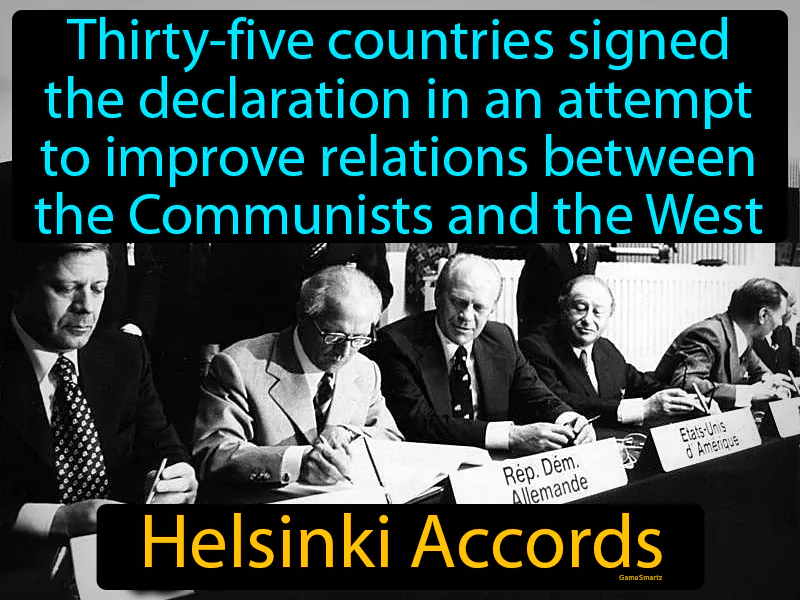Helsinki Accords
Helsinki Accords: Easy to understand
The Helsinki Accords, signed in 1975, were significant because they marked a rare moment of cooperation during the Cold War, a period marked by intense tension between the Communist East and the Western democracies. This agreement helped to reduce fears of nuclear conflict and promoted human rights, which was a big issue during the "Crisis in Confidence" era when people doubted the government's honesty and ability to keep peace. Ideas from the Helsinki Accords, like respecting human rights and peaceful conflict resolution, continue to be important today. For example, when countries work together to peacefully resolve disputes or when citizens demand transparency and fairness from their governments, they are reflecting principles from the Accords. In everyday life, this means people can feel more secure about global peace efforts and are encouraged to stand up for justice and equality in their communities.

Practice Version

Helsinki Accords: Thirty-five countries signed the declaration in an attempt to improve relations between the Communists and the West. Helsinki Accords. The Helsinki Accords were agreements made in 1975 to improve cooperation and security between Eastern and Western Europe.